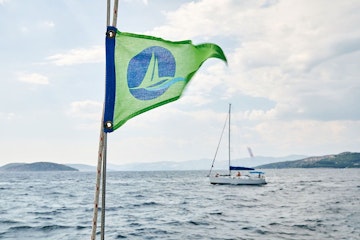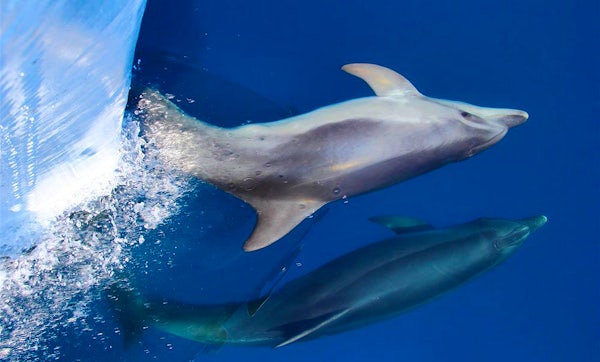There’s nothing quite like watching dolphins ride the wake at the front of your boat or seeing sea turtles enjoying the wide open sea whilst sailing. Unfortunately, the increasing number of boats and tourists on the sea has caused problems for marine animals and coastal habitats.
Marine wildlife disturbances can be caused by the physical presence of boats as well as the noise pollution of vessels in the area. Most species of fish are able to detect sounds from well below 50 Hz and a number of fish species have adaptations in their auditory systems that enhance sound detection and enable them to detect sounds 3 kHz and above. Everything from the tiniest plankton up to whales sense their acoustic environment.
Marine animals are able to hear over much greater distances than they can see or smell, making sound pivotal to their survival. From sharks to shellfish, sealife use sound to hunt, navigate, protect their territory and attract mates, as well as find a home and sense danger coming. Noise pollution has a disruptive impact on an already weakened marine ecosystem, making it an important, yet overlooked aspect of what constitutes a healthy sea or ocean.

Although it can be tempting to try and get close to marine animals when you come across them, it’s always best to view them from a safe and respectful distance, for their safety and yours. By doing so, you’ll ensure that you don’t disrupt migratory patterns, social groups or breeding and reproductive activities.
How to Lessen your Impact on Marine Wildlife:
- Sail using the power of the wind wherever possible, as you produce less noise pollution
- If you see wildlife whilst sailing, maintain a safe distance for their safety and yours
- Do not disturb, harass or make loud noises near marine mammals
- Do not feed mammals and keep an eye on your possessions if the wind is strong, to avoid them flying into the animals path
- Avoid sudden or repeated changes in speed or direction near a marine mammal
- Avoid approaching marine mammals when another watercraft is near, as multiple vessels are likely to make a larger disturbance
